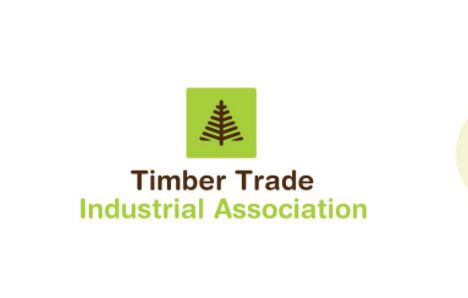The end of the 2017-18 financial year is just around the corner again, so should we be considering the purchase of a vehicle now and how do we prepare to claim on the vehicles we have?
The Tax Benefit
If the car is in your personal name you can claim a tax deduction on the car expenses where the car has been used for business purposes. The two common methods to claim the income tax deduction are the ‘logbook method’ or ‘cent per kilometre’ method.
The logbook method can produce a better tax outcome but it will require you to maintain a 12-week continuous logbook (you have to keep one every 5 years as long as your circumstances don’t significantly change) and prepare more calculations annually.
The cent per kilometre method allows you to claim a maximum of 5,000kms using a set rate depending on the engine capacity of the car. Unless you are GST registered you would not be able to claim the GST on the purchase of, and running costs of the car.
If the car is purchased by the company, the company should be able to claim 100% of the annual running costs, depreciation, and interest cost. However, fringe benefits tax will need to be factored in. This is a cost borne by the company for making the car available for the staff (i.e. you) for private purposes.
- Do you want to claim the GST on the purchase and running costs of the car?
GST credits can only be claimed by the GST registered entity. Regardless of whether you are a sole trader or company, if you are GST registered you should be able to claim back the GST on the car.
For GST credits on the annual running costs of the car, please note that if you are a sole trader, the GST credit is calculated and capped depending on the car deduction method you elect to use (as discussed above). The ‘cent per km’ method generally produces a less GST credit claim due to the maximum claim of only 5,000km. This limitation does not apply to cars owned by the company as the FBT implication factors in the GST adjusted for the private usage portion.
When selling the car, you will also need to factor in the GST payable on the market value of the car. For example, if your company purchased a car for $55,000 you would expect to get back $5000 in GST credit. However if you sell the car in 6 months’ time for the same $55,000 you will have to pay the $5,000 GST back to the tax office.
Effective Running Cost Management
If managing the running costs of your fleet vehicles or business owned vehicles is an issue then you have a readymade solution in a product called Fleet Saver. Companies that offer Fleet Saver are able to provide you with a total package for owning and operating a vehicle that reduces all your costs to a one month payment based on a flexible budget.
The huge benefit of this is that at the end of the financial year you only have to ask for a printout and you have all your costs and depreciable asset on one report ready to hand to your accountant.
Fleet Saver also gives you real time tracking ability of each vehicle and a monitor on usage, security and expenditure.
Salary packaging still tax effective
With many households feeling the squeeze of financial pressure, employers may find that their staff are enquiring about their salary packaging options. Salary packaging is still a tax effective option for both employees and their employers, however caution must be had as to the types of benefits that are packaged. The packaging of FBT exempt benefits, such as laptops, mobile phones, briefcases and other portable tools of trade will still provide a benefit to both parties.
Salary packaging superannuation is not considered a fringe benefit and will not attract any FBT, however care should be taken in relation to the employee’s contribution limits.
Salary packaged cars continue to remain popular, with employees in all income brackets able to get significant benefits. When structuring the employee’s salary package, employee contributions are still popular as they usually provide the greatest cash benefit to the employee. It is important that employee contributions to reduce any FBT are reviewed by employers, as often the salary packaging provider may not appreciate the FBT risks involved where contributions are not paid on time, or where there is a deficit or excess in contributions made by the employee compared with the FBT liability.
Good news for employers with fleet vehicles
The ATO released Practical Compliance Guidelines in late 2016 which provides a concession for FBT record keeping in relation to logbooks held by employees driving fleet vehicles. Under the new Guidelines, the ATO have accepted that employers may use an ‘average business use percentage’ by taking the average of the valid logbook percentages for each car in the fleet, provided that at least 75% of the cars in the fleet have a valid logbook.
The average business use percentage can be used for a period of five years in respect of the fleet – including replacement and new cars, provided that the fleet remains at 20 cars or more. The Guidelines may also be used as a basis for determining each relevant employee’s reportable fringe benefits amount.
There are a number of requirements in order to access this FBT concession however:
- The cars are ‘tool of trade cars’ – e.g. cars used for a predominant business purpose. The position of the employee is also relevant as key executives are unlikely to be considered to have a tool of trade car;
- The employees are mandated to maintain logbooks in a logbook year;
- At least 75% of the cars have valid logbook maintained by the employer;
- The cars are of a make and model chosen by the employer, rather than the employee (or the employee has a choice of a limited range of cars);
- Each car in the fleet has a GST-inclusive value less than the luxury car limit applicable at the time the car was acquired (currently $64,132); and
- The cars are not provided as part of the employee’s remuneration package (i.e. not salary packaged).
Employers should consider whether they can qualify for the simplified record keeping concession in light of the above requirements and do comparisons to actual logbook work-related percentages recorded by employees to determine whether an average percentage is more favourable.

Salary Packaging
National Fleet Finance are specialist NEW generation salary packagers, supplying packaging wholesale to the motor industry.
Get the best rates and a totally personal one on one service.
Find out how you can save tax dollars on your next vehicle purchase.
Ready to find out more?
Better Buying Power
Associations and memberships using the National Fleet Finance Membership option can get benefits for their membership. In some cases even benefit for the association or club.
Get a specialist consultant from National Fleet to give you and assessment of your club or association for free.
Latest Member
TTIA Members
The Timber Trade Industrial Association is a registered membership partner of National Fleet Finance. We work to get their members better deals from the vehicle industry.




